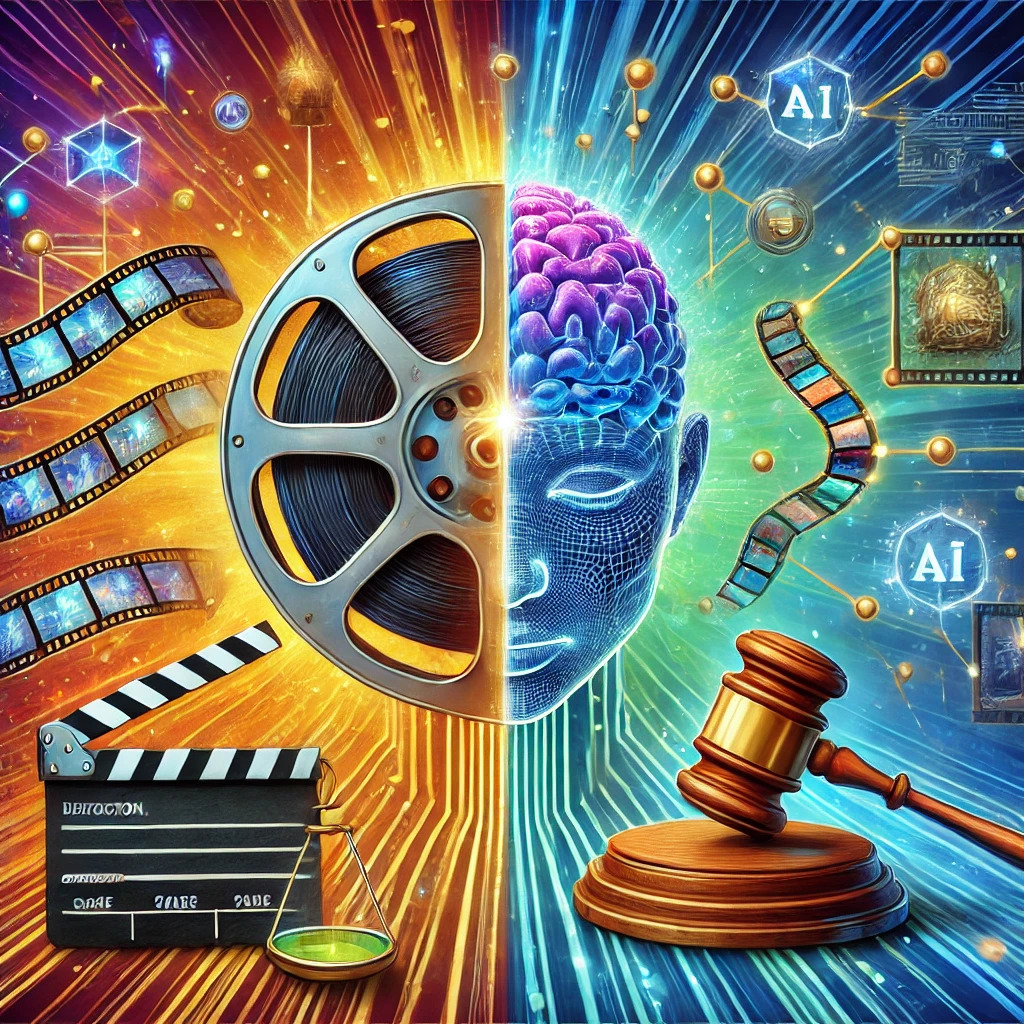Artificial Intelligence (AI) is rapidly transforming the entertainment industry, particularly Hollywood, by revolutionizing filmmaking, sparking legal debates, and influencing creative processes. This in-depth analysis delves into the multifaceted impact of AI on Hollywood, examining recent advancements, legal challenges, and industry responses.
AI-Generated Video Content
Revolutionizing Filmmaking with AI
AI’s ability to generate video content from textual descriptions marks a groundbreaking development in filmmaking. This technology enables the creation of entire scenes, characters, and dialogues without human intervention, potentially transforming the production process. Websites offering “text to video” services are pioneering this innovation, suggesting a future where screenplays can be converted into feature-length films at significantly reduced costs.
Potential Benefits:
- Cost Efficiency: Reduction in production costs.
- Speed: Faster turnaround times for video content creation.
- Creativity: Enhanced creative possibilities with AI-generated scenes.
Challenges:
- Job Displacement: Potential loss of employment for traditional roles in filmmaking.
- Quality Control: Ensuring AI-generated content meets industry standards.
Legal Battles Over Copyright
Navigating Copyright Infringement
As AI technologies blur the lines between human creativity and machine automation, copyright infringement lawsuits have surged. These legal battles typically fall into two categories: input infringement and output infringement.
Input Infringement:
- Disputes over the use of copyrighted material in training AI models.
- The concept of fair use is frequently contested, with potential cases escalating to the Supreme Court.
Output Infringement:
- Legal challenges focus on the originality of AI-generated content.
- Courts have generally favored originality, setting a precedent for future cases.
Proactive Measures by AI Firms:
- Securing licenses for content libraries to avoid litigation.
- Advocating for amendments to copyright laws to address AI-related issues.
Defamation and Legal Ramifications
Addressing Defamation and Right of Publicity
The rise of AI-generated content has raised concerns about defamation and the right of publicity. Instances of AI spreading false information about individuals have led to legal challenges, testing the limits of existing laws.
Key Legal Concerns:
- Defamation: AI-generated false information and its legal repercussions.
- Right of Publicity: Unauthorized use of individuals’ likenesses and voices, highlighting the need for federal legislation.
Relevant Laws:
- Section 230 of the Communications Decency Act: Often cited in cases involving online defamation.
- State Laws: A patchwork of regulations that are increasingly seen as inadequate.
Celebrity Endorsements of AI
Embracing AI for Self-Promotion
Despite mixed opinions, some celebrities are leveraging AI to enhance their brand. By licensing their likeness and voice to AI platforms, they engage with fans in innovative ways, though this comes with potential risks of misrepresentation.
Notable Examples:
- Meta: Secured licenses from celebrities, allowing fan interactions with their AI-generated images and voices.
- Fan Engagement: Novel ways for celebrities to connect with their audience through AI.
Risks:
- Misrepresentation: Unauthorized or inappropriate use of celebrity likenesses.
- Control: Maintaining control over AI-generated representations.
Guild Agreements on AI
Industry Responses and Agreements
The impact of AI on Hollywood has prompted various guilds to establish specific agreements regarding its use.
Directors Guild of America (DGA):
- Prohibits replacing members with AI.
Writers Guild of America (WGA):
- Excludes AI-generated material from considerations of credit and compensation.
Screen Actors Guild (SAG):
- Requires explicit consent and negotiation for AI replication of members’ likenesses.
The Future of AI in Hollywood
Balancing Innovation with Responsibility
AI’s capabilities and influence in the entertainment industry continue to evolve, promising both innovation and efficiency. However, it is crucial to navigate this landscape with ethical considerations and respect for legal boundaries.
Key Considerations:
- Ethical Use: Ensuring AI is used responsibly.
- Legal Compliance: Adhering to evolving copyright and defamation laws.
- Industry Standards: Maintaining high-quality standards in AI-generated content.
As Hollywood embraces the intersection of creativity and automation, stakeholders must remain vigilant, balancing progress with responsibility to safeguard individual rights and promote sustainable innovation.


